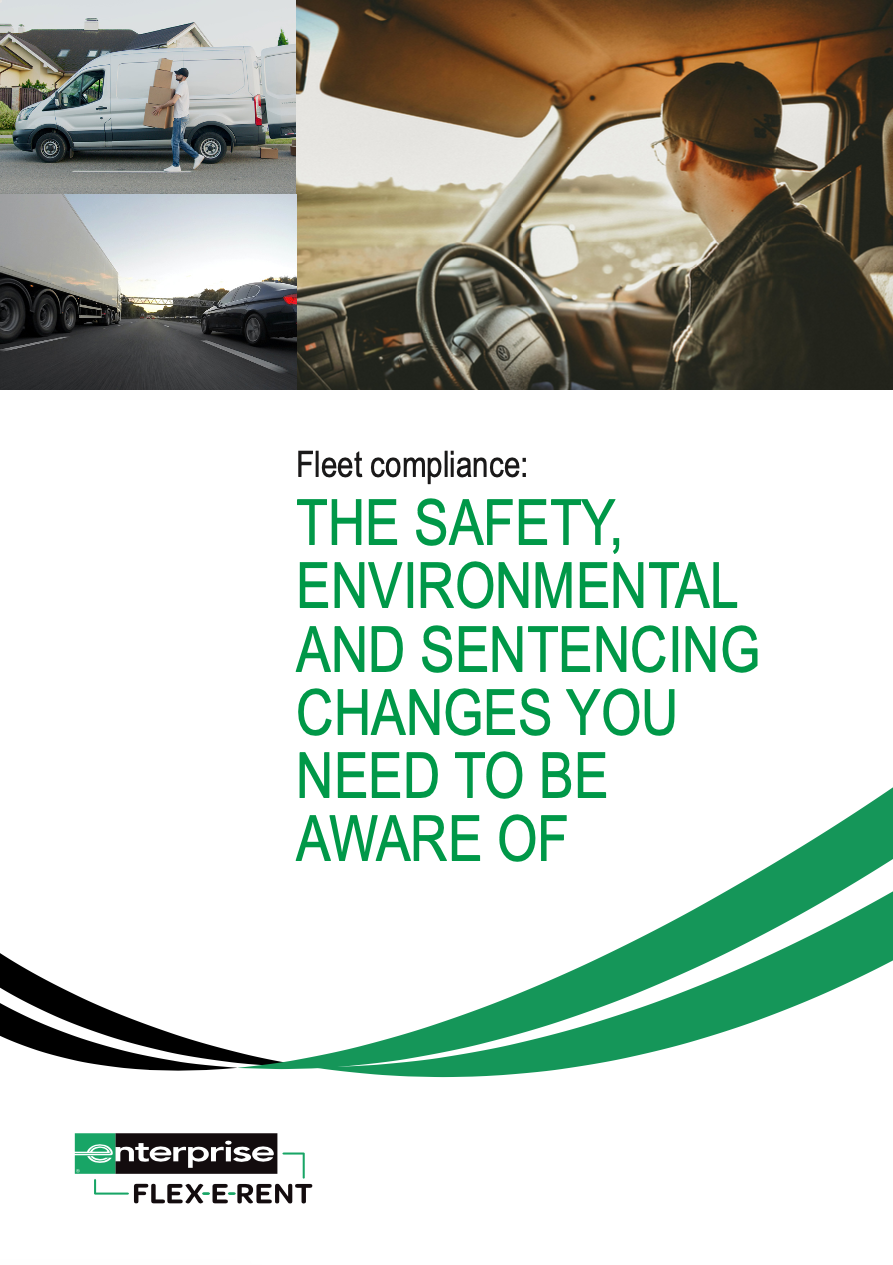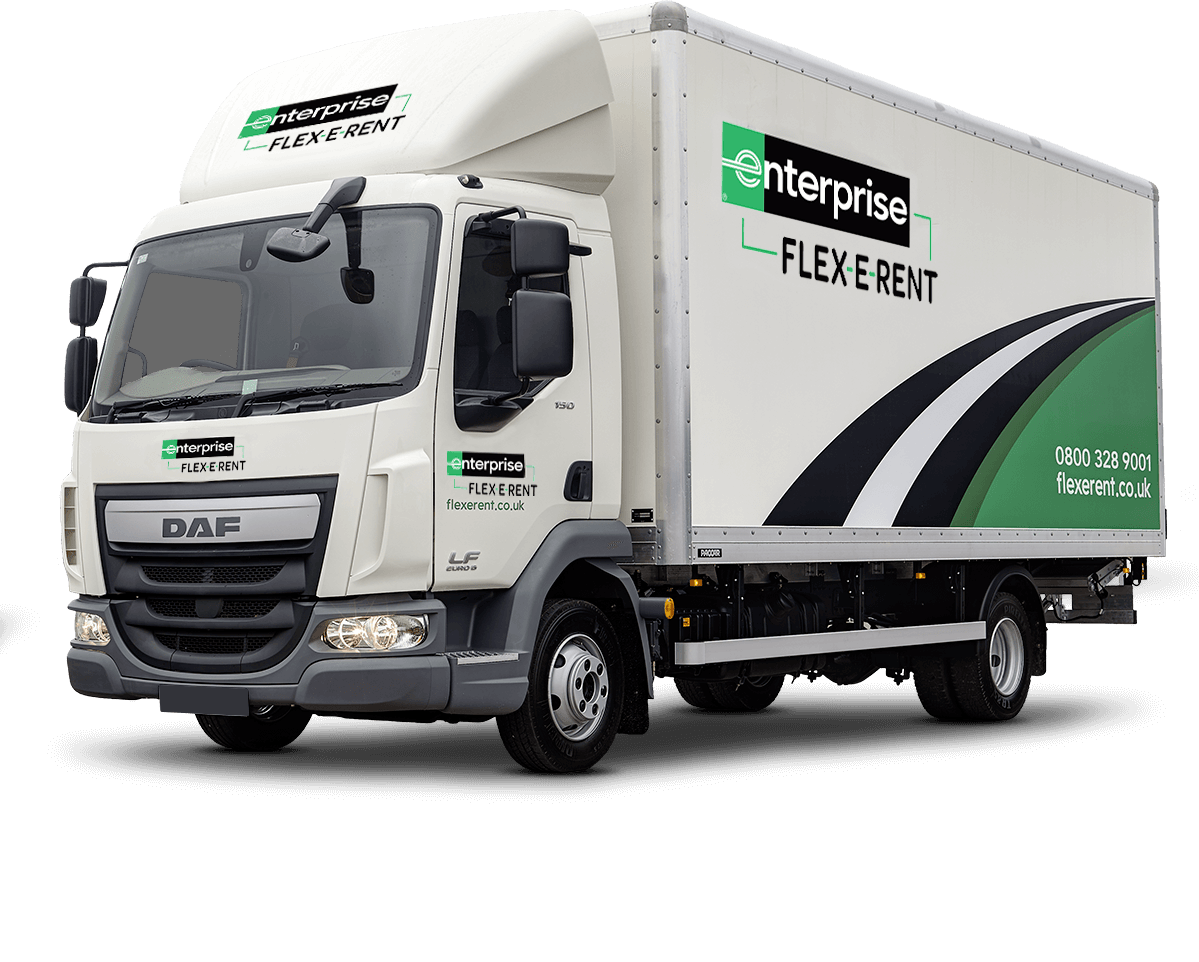In August 2023, London’s Ultra Low Emissions Zone (ULEZ) was expanded across all boroughs, stretching as far north as Enfield, west to Uxbridge, east to Rainham and south to Croydon. Essentially, most of the regions that fall within the M25, including Heathrow Airport, are under ULEZ rules.
While there are no further plans expected, as of yet, you must have all the key information and understand how ULEZ will affect your fleet.
In this complete business guide to ULEZ, we’ve compiled everything you need to know, including how much you could be charged.
Learn everything you need to know to get your fleet compliant in our free guide - Fleet compliance: the safety, environmental and sentencing changes you need to be aware of.
Get your copy here:
What is the Ultra Low Emission Zone (ULEZ)?
Launched in April 2019, ULEZ aims to cut emissions by charging drivers of cars, vans, motorcycles and trucks that are non-compliant.
Since coming into effect, 95% of vehicles driving within the ULEZ zone have met the strict emissions standards – a dramatic increase from just 39% in 2017. This reduction led to a nearly 50% reduction in harmful nitrogen dioxide (NO2) pollution in Central London.
Part of this is largely down to the recent expansion of ULEZ to all London boroughs within the M25 circular back in August 2023.
For this to be achieved, many fleet businesses and commuters have to change their vehicle, which has been the subject of controversy. ULEZ has led to fleet managers having to re-evaluate their vehicles.
What Are The ULEZ Rules and Requirements?
ULEZ aligns with the Euro standards, which first appeared in 1992. These standards play a crucial role in regulating air pollution.
These regulations establish limits for harmful emissions like nitrogen oxides (NOx) and particulate matter (PM) from new vehicles and engines sold in the European Union.
To drive inside ULEZ without incurring a charge, your vehicle must meet the following requirements:
- Motorcycles, mopeds, motorised tricycles and quadricycles (L category): Euro 3 (NOx) - This requirement has remained unchanged since the initial ULEZ launch.
- Petrol cars, vans, minibuses and other specialist vehicles: Euro 4 (NOx)
- Diesel cars, vans, minibuses and other specialist vehicles: Euro 6 (NOx and PM)
Furthermore, Euro 7 standards will be coming into effect from July 2025. Euro 7 aims to bring stricter emission limits which involve measuring the particle emissions coming from your brakes and tyres.
What Are The ULEZ Charges for Non-Compliance?
Driving a non-compliant vehicle inside ULEZ will incur a daily fee of £12.50 for cars, motorcycles, vans and specialist vehicles (up to and including 3.5 tonnes) and minibuses (up to and including 5 tonnes).
For heavier vehicles over 3.5 tonnes gross vehicle weight (GVW), including HGVs, lorries and buses/coaches (over 5 tonnes GVW), no ULEZ charge needs to be paid. However, these vehicles would need to pay the London-wide LEZ charge if they do not meet the LEZ emissions standard. This charge is £100.
The ULEZ charges are in addition to the £15 London Congestion Charge that most vehicles already have to pay. This means many drivers have to pay £27.50 per day (£115 for a heavier vehicle) to drive in the capital.
Since you have to pay the ULEZ charge for each day you’re driving within the zone, costs can easily mount for non-compliance.
How to Pay ULEZ Charges for HGVs and Vans
You can pay the charge by midnight on the third day following your journey, or you can pay up to 90 days in advance.
Here’s a rough breakdown of the charges for driving within the ULEZ in non-compliant vehicles:
|
Number of vans in your fleet |
Daily charge |
Weekly charge |
Monthly charge |
Annual charge |
|
1 |
£12.50 |
£62.50 |
£250.00 |
£3,000 |
|
5 |
£62.50 |
£312.50 |
£1,250.00 |
£15,000 |
|
10 |
£125.00 |
£625.00 |
2,500.00 |
£30,000 |
|
Number of HGVs in your fleet |
Daily charge |
Weekly charge |
Monthly charge |
Annual charge |
|
1 |
£100.00 |
£500.00 |
£2,00.00 |
£24,000.00. |
|
5 |
£500.00 |
£2,500.00 |
£2,000.00 |
£120,000.00 |
|
10 |
£1,000.00 |
£5,000.00 |
£5,000.00 |
£240,000.00 |
* Calculations in this table are based on a fixed charge fee of £12.50 per day per van and £100 per day per lorry.
Find out more about the ULEZ charges, plus when and how to pay.
Penalties for Non-Compliance
It's important to note that driving within the ULEZ without meeting emissions standards or paying the correct charge can result in a Penalty Charge Notice (PCN). This is an additional charge on top of the original ULEZ fee.
You can receive a PCN if you:
- Don't meet ULEZ standards or don’t have a valid exemption/100% discount registration.
- Haven't paid the correct ULEZ charge by midnight on the third charging day after entering the zone (your vehicle doesn't meet standards).
- Paid the charge for the wrong registration plate or travel date.
- Paid by post less than 10 days before your travel date.
For most vehicles, the penalty charge is £180 but is reduced to £90 if you pay it within 14 days.
However, for larger commercial vehicles such as buses, HGVs, and other specialist vehicles the penalty charge is £1000 - which, even though reduced to £500 if paid within the 2-week time frame, is still a hefty fine.
Learn more about the Penalty Charge Notice (PCN) here.
Who is Exempt From ULEZ charges?
There are still some exemptions for older, more polluting vehicles under specific circumstances:
- London-licensed taxis: A 12-year age limit applies to older, more polluting taxis. Newer, cleaner taxis benefit from a 15-year age limit.
- Historic vehicles: All vehicles built before 1 January 1973 are exempt regardless of use.
- Wheelchair-accessible private hire vehicles: These are exempt only when carrying a passenger booked through a TfL-licensed PHV operator.
You can find out more about ULEZ exemptions here.
Unless your vehicle meets one of these exemptions or is already compliant with ULEZ standards, you'll need to pay the daily charge.
How to Establish Whether Your Business Vehicle Is ULEZ-Compliant
Most drivers of older, more polluting diesel and petrol vehicles will be affected by the ULEZ charge.
Cars, Vans and Other Specialist Vehicles
- Petrol Engines: If your car, van, or other specialist vehicle has a petrol engine meeting Euro 4 emission standards (introduced in January 2006), you're ULEZ compliant.
- Diesel Engines: For diesel cars, vans, and specialist vehicles, compliance requires a Euro 6 engine (introduced in September 2015). If your vehicle has been registered before this, you’ll need to pay the ULEZ charge.
Lorries, Coaches & Larger Vehicles Over 3.5 Tonnes
Buses, coaches and minibuses with a Gross Vehicle Weight (GVW) exceeding 5 tonnes don’t need to pay the ULEZ charge.
There are specific types of vehicles over 3.5 tonnes GVW that aren’t affected by the ULEZ charge, so long as they meet the LEZ emissions standards. These include:
- HGVs
- Lorries
- Vans
- Motor caravans
- Motorised horseboxes
- Breakdown and recovery vehicles
- Snow ploughs
- Gritters
- Refuse collection vehicles
- Road sweepers
- Concrete mixers
- Fire engines
- Tippers
- Removal lorries
- Other specialist vehicles
The best way to ensure compliance is to check your vehicle before entering London. Use Transport for London's (TfL) vehicle checker by entering your registration plate.
What to Do if Your Business Vehicle Isn’t ULEZ-Compliant
If your vehicle doesn't meet the ULEZ emissions standards, you'll incur the daily charge.
You can pay all London driving charges (ULEZ, LEZ, and Congestion Charge) online at once using your registration number.
However, TfL prefers that you drive cleaner vehicles instead of paying daily charges.
Before incurring multiple daily charges for your fleet, consider alternative options depending on your specific vehicles.
Upgrade to Vehicles That Meet ULEZ Standards
For vans in particular, a good option is to upgrade your fleet to one that meets the ULEZ standards.
All new vans now meet these standards, with some Euro 6 options available since 2013. This means a wider selection of used, compliant vans are available as businesses upgrade.
Get Electric Vehicles
Where feasible, the government and TfL encourage transitioning fleets to electric vehicles. These produce zero emissions and are exempt from ULEZ charges.
Hybrid and electric vehicles with diesel engines must meet Euro 6 standards, whilst those with a petrol engine must meet Euro 4 standards.
Retrofit Your Existing Fleet
The ULEZ allows retrofitting some vehicles with emissions-reducing technology to meet standards.
However, currently, the Clean Vehicle Retrofit Accreditation Scheme (CVRAS) only certifies technology for buses, coaches, and refuse vehicles. Retrofitting other vehicles may be challenging.
Explore Scrappage Grants (Limited Availability)
TfL offers scrappage schemes to help with vehicle upgrades.
At the moment, there is a Car and Motorcycle Scrappage Grant which provides £1,000-£2,000 to replace older, polluting vehicles with ULEZ-compliant models. Currently, this is the only open scrappage scheme.
Hire ULEZ-Compliant Vehicles
For businesses of all sizes, a cost-effective option is to hire vans or HGVs that already meet ULEZ standards. This avoids the upfront cost of buying new vehicles or retrofitting existing ones.
Hiring compliant vehicles also prepares you for potential future regulations.
At Enterprise Flex-E-Rent, our flexible hire offering allows you to hire ULEZ-compliant vehicles on terms to suit your business - keeping you ahead of regulations, and your competition.
ULEZ: Is This Only the Beginning?
The focus on cleaner and safer fleets continues to gain momentum. ULEZ is proof of this as governments want to see an end to vehicles with high emissions on the UK’s roads.
Electric vehicles remain a key strategy, with ongoing tax benefits and exemptions from clean air zones (ULEZ, LEZ). Furthermore, plans for even stricter Zero Emission Zones (ZEZs) are in development. These zones aim to support London's goal of becoming a zero-carbon city by 2050.
While ZEZ implementation may take some time, low emission zones (LEZs) and clean air zones (CAZs) are already appearing across the UK.
Here's a look at some current clean air zones, their class, and area (square miles) according to gov.uk (as of March 2024):
- Bath (Class C) - 1.2 miles
- Birmingham (Class D) - 2.96 miles
- Bradford (Class C) - 9.35 miles
- Bristol (Class D) - 1.18 miles
- Portsmouth (Class B) - 1.16 miles
- Sheffield (Class C) - 0.9 miles
- Tyneside (Newcastle and Gateshead) (Class C) 0.94 miles
There are also many more local authorities planning to introduce some form of a Clean Air Zone shortly, including Southampton, Manchester, and many more.
A Need for Flexibility
With so many regulations demanding newer, less polluting, and safer vehicles, it’s no longer feasible for fleet managers to purchase vehicles outright.
Vehicle leasing, which has been a popular choice for businesses in the past, will also have to be reconsidered as changing rules and regulations make being locked into long contracts a real challenge. Even vehicle hire, another alternative, can be a problem if you’re stuck in a long, rigid contract.
Fleet managers need a more flexible approach to vehicle acquisition.
At Enterprise Flex-E-Rent, our flexible hire offering gives you all the security of fixed contracts and pricing, with the flexibility to return vehicles when no longer needed at your convenience.
Flexible hire is helping businesses flex their fleet to meet their immediate needs, factoring in rapidly changing rules and regulations, as well as the ongoing challenges of the pandemic. Our offers extend to East and West London boroughs.
We can help you source the ULEZ-compliant vehicles you require while giving you the freedom to return and upgrade when it suits you. Speak to one of our flexible hire experts to see how we can help you comply with the ULEZ and beyond.









